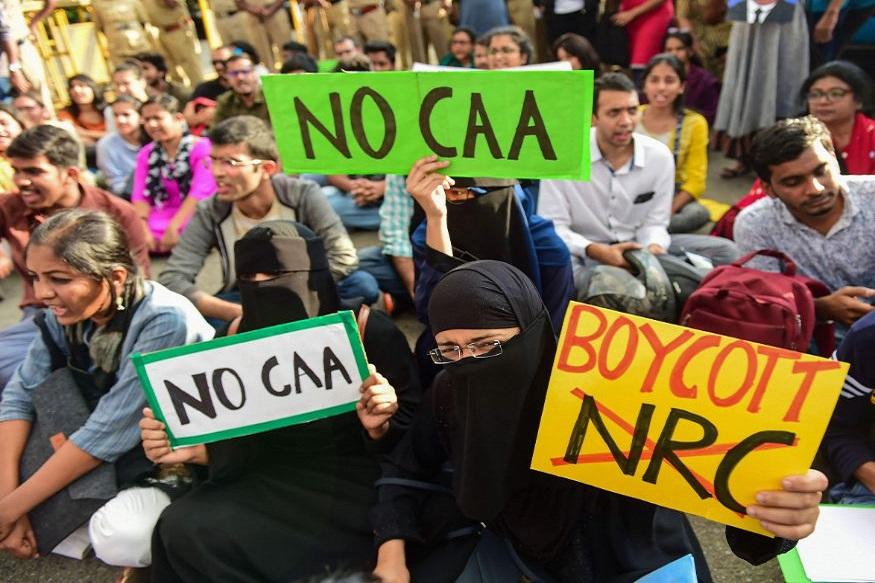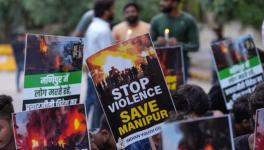Hoax Is Being Sold in the Name of CAA

Representational Image. Image Courtesy: News18
The central government has made repeated claims that our country has been infested by illegal immigrants who have infiltrated into India and now are enjoying the rights of a citizen. It has pressed upon the dire need to take immediate steps to identify these infiltrators and disenfranchise them. PM Modi, during his Bengal visit recently, reiterated the same. So, under the mounting pressure of anti-NRC anti CAA protests, when the present government says that there is no circular or official notification on National Register of Indian Citizen (NRIC), it can be easily identified as a white lie.
Who is a citizen of India?
In 1955, Indian Parliament made its first law to define who is an Indian citizen. As per this law, any person born inside the territory of India or its embassy or its aircraft and ship, is a citizen of India. Later in 1986, Prime Minister Rajiv Gandhi-led Congress government amended this definition and clarified that any person born inside Indian territory will not automatically become an Indian citizen, but one among the parents has to be an Indian citizen. This law became operational since July 1, 1987. In 2003, erstwhile Prime Minister of India, Atal Bihari Bajpayi-led NDA government again brought another amendment in the definition of citizenship. It said that if any one person among the parents was identified as an infiltrator, their children will not be considered an Indian citizen.
Now the question arises: who is this illegal migrant or infiltrator? The 2003 amendment clarifies that anyone who has entered into the country without any legally valid document or has lived in the country even after his/her visa has expired will be considered as an illegal migrant or infiltrator. And a child of an infiltrator will also be considered an infiltrator. This law also clarified that any infiltrator or illegal migrant will never be able to apply for Indian citizenship.
However, the 2003 law stopped short of setting the parameter of identifying any illegal migrant or infiltrator based on religion. So, the 2003 citizenship law defines an infiltrator or illegal migrant irrespective of the person’s religion.
Citizenship Amendment Bill, 2016
The present BJP government alleged that the 2003 citizenship law brought by erstwhile BJP government is regressive for Hindu refugees. So, the present government issued a gazette notification in 2015 to table Citizen Amendment Bill 2016. After this, BJP leaders started saying that even if NRC identifies Hindus as illegal migrants, through this bill, Hindus can be reinstated as the rightful citizens. But if the bill is studied thoroughly, one would find three main clauses.
First, if any Hindu, Sikh, Christian, Buddhist, Parsi, Jain person from Pakistan, Bangladesh and Afghanistan migrated to India because of religious persecution, they “shall not be treated as illegal migrants for the purposes of the Act”. It is to be taken note of that it doesn’t say anything about granting citizenship.
Second, if any overseas citizen gets convicted under any law in India, the citizenship of this person will be cancelled.
Third, any person who has migrated illegally from these three countries, would have to stay in India for a period of six years instead of 11 years to be eligible for citizenship. Here also, nothing was said definitely about granting citizenship.
Joint Parliamentary Committee Report, 2016
The Joint Parliamentary Committee (JPC), formed to review Citizenship Amendment Bill 2016 consisting of MPs, presented its report on January 7, 2019 in front of Parliament. A careful reading of this report will reveal that the committee asked the government whether this bill automatically benefits any person of minority communities of Bangladesh, Pakistan and Afghanistan. Government replied that the applicant has to declare three things with evidence in order to be eligible under CAB 2019:
1) The person has migrated to India before 31st December, 2014 (JPC report on CAB, Page 49)
2) The person has migrated due to facing religious persecution in his/her original country
3) The person has to provide evidence of being a former citizen of Bangladesh or Pakistan or Afghanistan as this bill only concerns these three countries.
It is not naïve to say that submitting any of the last two evidences is possible at all. JPC then asked the government how to identify whether the applicant has faced religious persecution or not. The government replied that the person who has already applied to the government for citizenship at the time of his/her entry in India through self-declaration of having faced religious persecution, will only be considered.
Then, the JPC asked the government how many persons will benefit from the implementation of CAB 2019. The government replied that the number of immediate beneficiaries is 31,313 among which 25,847 are Hindus, 5,807 Sikhs, 55 Christians, 2 Buddhists and 2 Parsi because only these persons have applied and submitted declaration along with the required evidences. (Joint Parliamentary Committee Report, Page 39, Point 2.17 & 2.18).
Again, the JPC asked the government that if the persons who haven’t applied or declared the same during their entry into India would benefit under CAB 2019. The government replied that those persons have to submit evidence that they have migrated because of religious persecution in their original countries though it would be very difficult for them to prove so. But if someone did apply for citizenship under CAB 2019 with corroborating evidences, the RAW will investigate the claim and after thorough checking, the claim would be considered. (Joint Parliamentary Committee Report, Page 39, Point 2.18).
Conclusion
Now that the Bill has come into force as an Act, a message has been communicated by the footsoldiers of the regime that the Hindus will not be affected by the NRC as even if they are left out, the CAA will come to their rescue. This was crucial, as the major share of those left out of the NRC in Assam were Hindus. They seem to be stoking a commonsensical illogic that CAA will ensure that no Hindu is left behind, while Muslims are left vulnerable while it is a fact that Muslims are being brazenly targeted. But alongside, a hoax is being sold to the majority community, particular the most vulnerable sections among them. If the answers to the JPC are to be read carefully, it is obvious that the number of direct beneficiaries of this amendment are just a handful and are very strictly defined. They would be too few compared to the amount of fuss created by the present government. As to the other applicants who may also seek the same status of being persecuted, it would undergo scrutiny by agencies like the RAW.
Moreover, it is also foolish to assume that someone would be furnishing documents to the effect of being an Indian citizen to the administration till one is left out of NRC, and then the same person would be furnishing documents to prove oneself to be a “persecuted minority” in another country. We must combat such naïve majoritarian commonsense who are for now being mobilised against the Muslim minority.
Also read: Opposition Parties Condemn TN Police Action Against Anti-CAA Protesters
Get the latest reports & analysis with people's perspective on Protests, movements & deep analytical videos, discussions of the current affairs in your Telegram app. Subscribe to NewsClick's Telegram channel & get Real-Time updates on stories, as they get published on our website.























